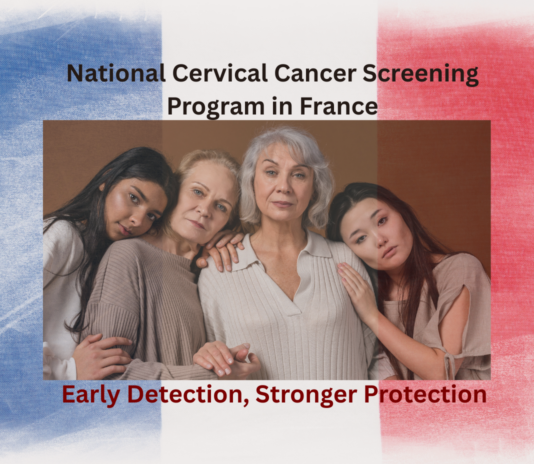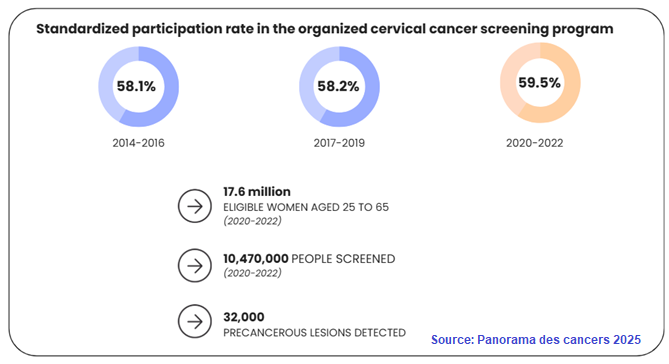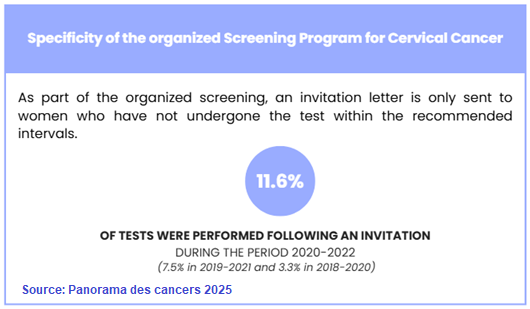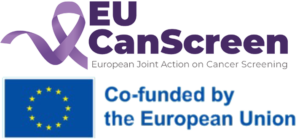National Cervical Cancer Screening Program in France
Progress and Challenges

National Cervical Cancer Screening Program in France
Established in 2018, the National Cervical Cancer Screening Program targets all women aged 25 to 65, including pregnant women, postmenopausal women, and women vaccinated against Human Papillomavirus (HPV). Each year, over 10 million women benefit from this program.
The World Health Organization (WHO) emphasizes that cervical cancer could be eradicated globally through effective screening and widespread HPV vaccination. In France, participation in the organized screening program reached 59.5% during the 2020-2022 period, representing a slight but steady increase compared to:
- 2% in 2017-2019 (+1.3 points),
- 58.1% in 2014-2016 (+1.4 points).

Screening Methods by Age Group
Two screening methods are offered, depending on age:
-Cytological examination (Pap smear), recommended for women aged 25 to 29.
-High-Risk HPV (HR-HPV) testing, recommended for women aged 30 to 65.
The frequency and choice of primary screening test are thus adapted to the woman’s age group, ensuring a targeted and effective approach.
HPV Vaccination: A Complementary Prevention Strategy
HPV vaccination complements cervical cancer screening by preventing up to 90% of HPV infections responsible for cervical cancer. In France, vaccination is recommended for:
• All girls and boys aged 11 to 14.
• Catch-up vaccination for adolescents and young adults aged 15 to 19.
Addressing Gaps in Women’s Health
Despite these efforts, 40% of eligible women still do not participate, or participate irregularly, in cervical cancer screening. The most affected populations include:
- Women over 50: nearly one in two women aged 50 to 65 is not regularly screened.
- Women in socially disadvantaged situations.
- Women with chronic diseases, severe or disabling conditions, obesity, or disabilities.
Yet screening remains highly beneficial: it allows for the early detection and monitoring of precancerous lesions, thereby preventing the progression to cervical cancer. When effectively implemented, screening could prevent 9 out of 10 cases of cervical cancer.
Outreach initiatives, known as “aller vers” actions, are currently being tested and implemented. These initiatives target vulnerable, underserved, and socially disadvantaged populations who are often distant from healthcare systems.

#EuCanScreen #CancerScreening #HealthCare #CancerPrevention #Cervical Cancer
Subscribe to our newsletter to get news and updates.
Subscribe to our newsletter to get news and updates.

The general objective of EUCanScreen is to assure sustainable implementation of high-quality screening for breast, cervical and colorectal cancers, as well as implementation of the recently recommended screening programs – for lung, prostate and gastric cancers. EUCanScreen will facilitate the reduction of cancer burden and achieving equity across the EU.
This project has received funding from the European Union’s EU4HEALTH Programme under the Grant Agreement no 101162959










